Attack on Titan Season 5: Will There Be a Sequel or Spin-Off?
Will there be an Attack on Titan Season 5 or a spin-off? Explore the latest rumors, official statements, and possible sequels in this in-depth analysis. Don’t miss out—find out what the future holds for the AoT universe!
ATTACK ON TITAN
Anime Fever
2/18/20259 min read
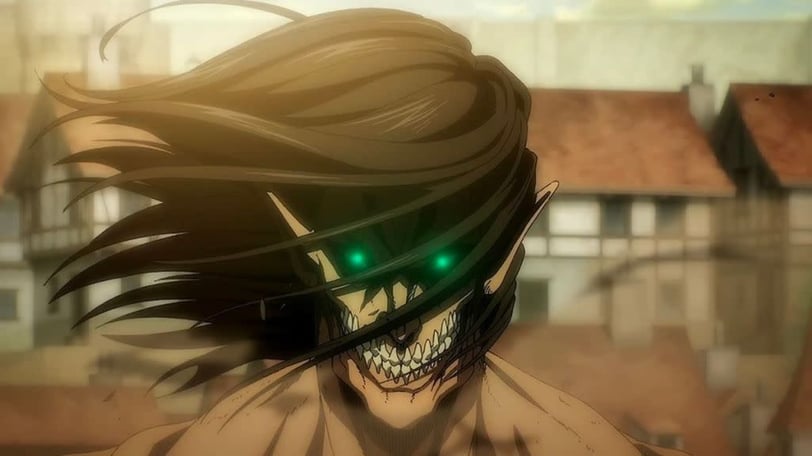

Spoilers Alert
Attack on Titan has been a monumental force in the anime industry since its debut in 2013. Created by Hajime Isayama, the series has captivated audiences worldwide with its gripping narrative, complex characters, and stunning animation. Its influence has been so profound that it has redefined the boundaries of anime storytelling, blending elements of dark fantasy, horror, and action to create a thought-provoking narrative that appeals to a broad spectrum of viewers. The series' success has also played a significant role in increasing the global popularity of anime, making it one of the first to receive widespread recognition outside of Japan.
The conclusion of Attack on Titan: The Final Season left fans both satisfied and contemplative. The final episodes resolved major plotlines while leaving certain aspects open to interpretation, prompting discussions about the cycle of violence and the quest for freedom. This ambiguous ending has led many fans to speculate about the possibility of a sequel or spin-off, eager to explore more of the rich universe Isayama has created.
This article aims to delve into these speculations by analyzing rumors, official statements, and potential avenues for future Attack on Titan content. We'll explore what the creators and production studios have said, examine existing spin-off materials, and consider fan theories that keep the conversation alive.
The End of Attack on Titan: Final Season
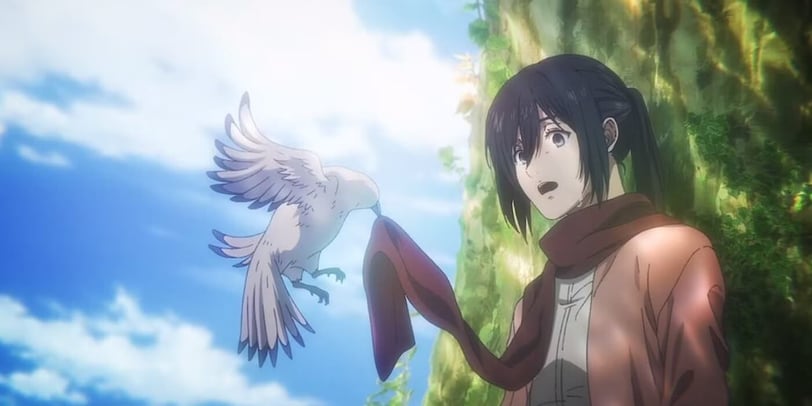

Attack on Titan: The Final Season culminated in a dramatic and thought-provoking conclusion that has left fans both satisfied and contemplative. The series finale, titled "Toward the Tree on That Hill," aired on November 4, 2023, bringing a decade-long narrative to a close. In the climactic episodes, protagonist Eren Yeager initiates the catastrophic "Rumbling," aiming to annihilate all life beyond Paradis Island. This drastic measure forces a coalition of former allies and enemies to unite against him. The intense battles ultimately lead to a poignant confrontation where Mikasa Ackerman, driven by her deep connection to Eren, delivers the fatal blow to end his destructive path.
The reception to the finale has been mixed, with discussions focusing on its thematic depth and character resolutions. Some viewers praised the ending for its bold narrative choices and emotional weight, while others found certain plot developments controversial or unsatisfying. This divergence in opinion has sparked extensive debates within the fan community, highlighting the series' complex storytelling and the strong emotional investment of its audience.
The conclusion does leave room for additional content. The post-credits scene offers an epilogue that mirrors the final scenes of the manga, providing a bittersweet closure while suggesting the persistence of conflict and the cyclical nature of violence. This open-endedness has led to speculation about potential sequels or spin-offs that could explore the aftermath of the series' events or delve into untold stories within the Attack on Titan universe.
Key events in the final episodes that could influence future narratives include the dismantling of the Titan powers, the political realignments following the end of the Rumbling, and the personal journeys of surviving characters as they navigate a world striving for peace amidst lingering animosities. These elements provide fertile ground for exploring new storylines, whether through direct sequels focusing on the next generation or spin-offs that delve into the histories and experiences of side characters.
In summary, while Attack on Titan has reached its official conclusion, the narrative threads and thematic questions it leaves behind offer ample opportunities for future exploration, keeping the door open for potential expansions of its rich and immersive world.
Hajime Isayama’s Statements on a Possible Sequel
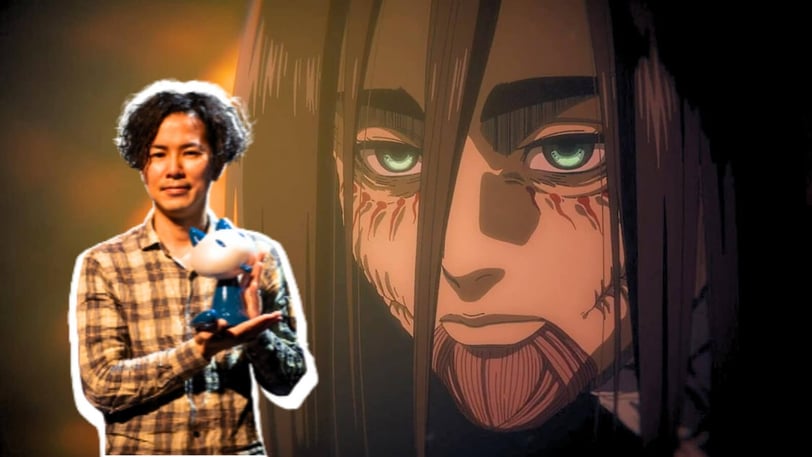

Hajime Isayama, the creator of Attack on Titan, has provided insights into his intentions regarding potential sequels or spin-offs of the series. In various interviews, Isayama has expressed a range of sentiments about continuing the Attack on Titan narrative.
In a 2021 interview with Crunchyroll, Isayama stated that he had "no plans as of now" for any spin-offs related to Attack on Titan. This clear declaration suggested a desire to conclude the story as it stood, without extending it further.
However, Isayama has also hinted at specific interests that could expand the Attack on Titan universe. Notably, he has shown interest in creating a spin-off focused on the character Levi Ackerman, one of the series' most popular figures. While no concrete plans have been announced, this indicates Isayama's openness to exploring certain facets of the story further.
Beyond the realm of Attack on Titan, Isayama has expressed a desire to pursue different creative endeavors. In interviews, he has mentioned plans to open a spa, reflecting interests outside of manga creation. Additionally, he has contemplated working on a comedy manga, signaling a shift from the intense and dark themes of Attack on Titan to lighter storytelling.
In summary, while Hajime Isayama has not committed to developing a sequel or spin-off for Attack on Titan, his expressed interest in a Levi-focused story and other creative projects leaves the door open for future endeavors within or outside the existing universe.
Official Announcements from MAPPA and Kodansha
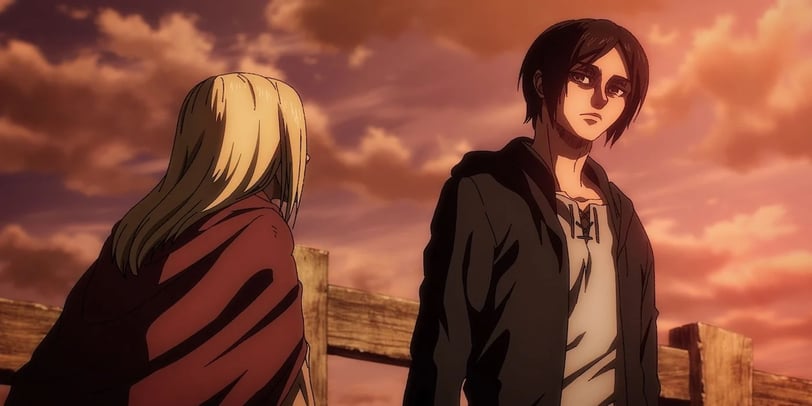

As of February 2025, neither MAPPA, the animation studio behind Attack on Titan, nor Kodansha, its publisher, have announced any new projects related to the Attack on Titan franchise. The most recent significant release was Attack on Titan: The Last Attack, a compilation film that recaps the final episodes of the series. This film premiered in Japan, earning 235 million yen during its opening weekend despite a limited release in 150 theaters. Internationally, Crunchyroll has confirmed that the movie will arrive in theaters in Spain and Mexico in early 2025, though exact dates are yet to be specified.
Following the conclusion of Attack on Titan, MAPPA has shifted its focus to other projects. In 2024, the studio released Bucchigiri?!, an original anime series that debuted in January. Additionally, MAPPA has been involved in producing Alice to Therese no Maboroshi Kojo, a film released on September 15, 2023. Looking ahead, the studio's 2025 lineup includes titles such as The Rose of Versailles and Zenshū, indicating a commitment to diversifying its portfolio beyond the Attack on Titan universe.
Decisions by anime studios and publishers to continue a franchise are influenced by various factors, including financial performance, market demand, and creative direction. The global anime market has been experiencing significant growth, valued at approximately USD 29.10 billion in 2024 and projected to reach USD 63.41 billion by 2034, with a compound annual growth rate (CAGR) of 8.1%. This expansion is driven by increasing international popularity, emerging digital distribution channels, and a rise in otaku culture.
Despite the lucrative market, the decision to extend a franchise like Attack on Titan involves careful consideration. Creators and studios must weigh the potential financial benefits against the risk of diluting the original story's impact. Maintaining artistic integrity and meeting fan expectations are crucial, as unnecessary extensions can lead to audience fatigue. Therefore, while the market conditions are favorable, any continuation of the Attack on Titan franchise would require a compelling creative vision that justifies further exploration of its universe.
Spin-Off Possibilities
The Attack on Titan universe has expanded through various spin-offs that delve into side stories and popular characters, offering fans deeper insights into the series' rich lore. These narratives not only enrich the main storyline but also present opportunities for potential anime adaptations.
Existing Spin-Off Material
Attack on Titan: No Regrets
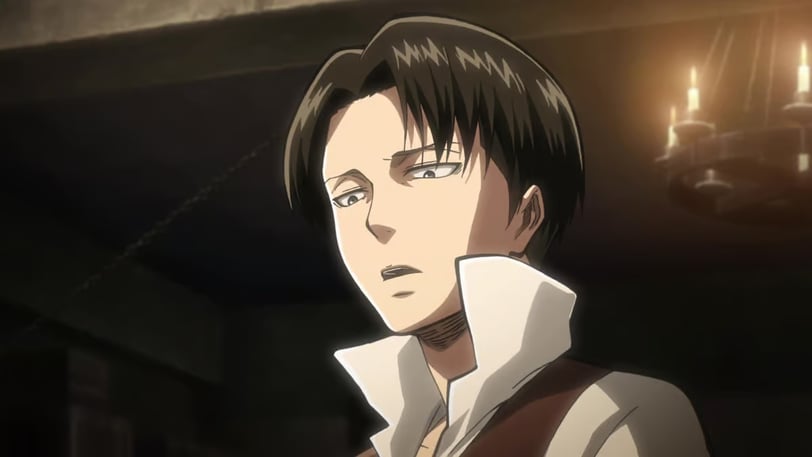

This manga focuses on Levi Ackerman's backstory, exploring his journey from a criminal in the Underground City to becoming humanity's strongest soldier under Commander Erwin Smith. The narrative delves into Levi's motivations and the formation of his unwavering bond with Erwin. Given Levi's popularity, this spin-off has been well-received by fans. Notably, it has already been adapted into a two-episode OVA (Original Video Animation), providing a visual representation of Levi's origins.
Attack on Titan: Before the Fall
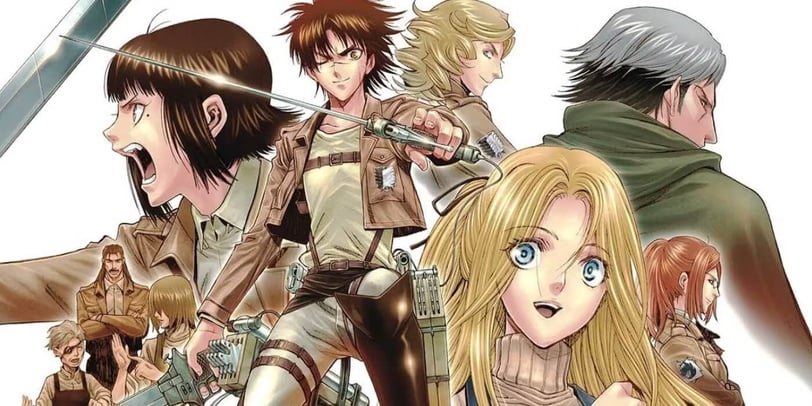

Set 70 years prior to the events of the main series, this light novel series, later adapted into a manga, chronicles the development of the Vertical Maneuvering Equipment and humanity's initial encounters with the Titans. The story centers on Kuklo, a boy discovered as an infant in the aftermath of a Titan attack, who is ostracized due to his perceived connection to the Titans. This prequel provides context to the technological and societal developments leading up to the main series.
Attack on Titan: Junior High
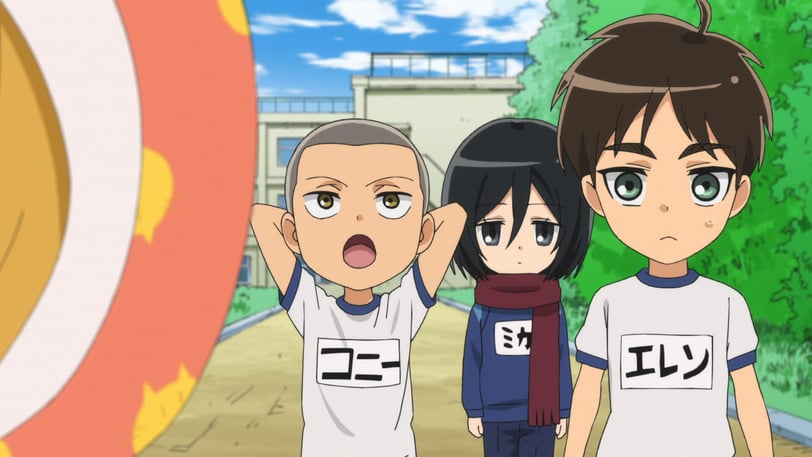

A parody series that reimagines the main characters as students and faculty in a junior high school setting, dealing with humorous and exaggerated everyday situations. This spin-off offers a lighthearted take on the otherwise intense and dark themes of the original series. It has been adapted into a 12-episode anime series, showcasing the characters in a chibi art style and comedic scenarios.
Potential for Anime Adaptations
While some spin-offs like No Regrets and Junior High have received anime adaptations, others remain solely in manga or novel form. The rich narratives of these existing spin-offs present viable opportunities for full-fledged anime adaptations, especially considering the sustained popularity of the Attack on Titan franchise. Adapting these stories would not only satiate the existing fanbase's appetite for more content but also attract new viewers interested in different facets of the Attack on Titan universe.
In conclusion, the diverse range of Attack on Titan spin-offs offers a wealth of content that could be explored through anime adaptations. These stories provide deeper character development and expand the lore of the series, making them compelling candidates for future projects.
Fan Theories and Speculation
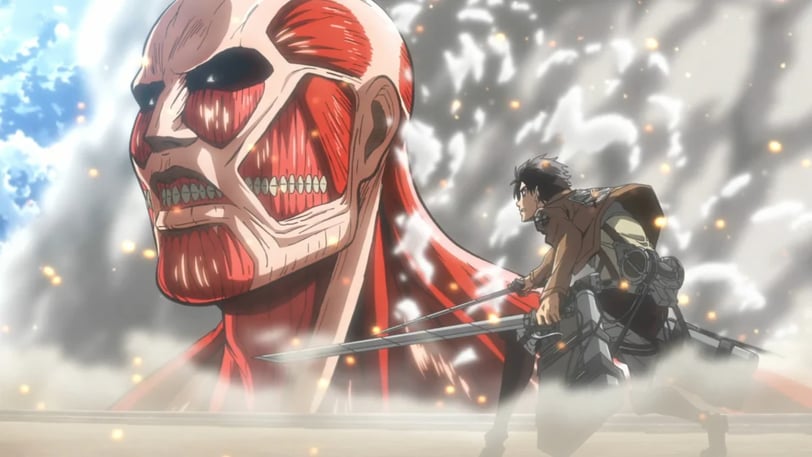

The conclusion of Attack on Titan has ignited a plethora of fan theories and speculations regarding potential sequels or spin-offs. These theories often stem from the desire to explore alternative narratives, unresolved plot points, or entirely new directions within the established universe.
Alternate Endings and Fan Reimaginings
A significant portion of the fandom has engaged in creating alternate endings to address perceived shortcomings in the original conclusion. One notable project is "Attack on Titan Requiem," a fan-made initiative that reimagines the final chapters of the manga. This project aims to provide a different perspective on the story's culmination, reflecting the community's investment in the series and their desire for varied interpretations.
Theories of New Timelines and Future Conflicts
Some fans speculate about the introduction of new timelines or alternate universes as a means to continue the narrative. These theories often draw parallels to other works that explore multiple realities, suggesting that characters could experience different outcomes or entirely new challenges in alternate settings. Such concepts open the door for fresh storylines that deviate from the original plot, offering creative avenues for potential sequels or spin-offs.
Fandom Influence on Future Content
The passionate response from the Attack on Titan community plays a crucial role in shaping future content. Creators and publishers often take note of fan reactions, as a dedicated and vocal fanbase can drive demand for additional material. While official continuations depend on various factors, including creative direction and commercial viability, the enthusiasm and engagement of the fandom can significantly influence decisions regarding expansions of the series.
In summary, the myriad fan theories and speculations surrounding Attack on Titan reflect a vibrant and engaged community eager to explore the series' universe further. Whether through alternate endings, new timelines, or entirely fresh narratives, the collective imagination of the fandom underscores the lasting impact of the series and its potential for future storytelling endeavors.
Conclusion
As of February 2025, the future of the Attack on Titan franchise remains a topic of active discussion among fans and creators alike. While the original manga concluded in 2021 and the anime adaptation reached its finale in 2023, recent developments suggest both possibilities and reservations regarding sequels or spin-offs.
Potential for Continuation
In a recent interview, Hajime Isayama, the creator of Attack on Titan, hinted at the possibility of extending the series beyond its original conclusion. This statement has reignited fan speculation about potential sequels or spin-offs, with discussions focusing on unexplored narratives within the Attack on Titan universe.
Additionally, the release of Attack on Titan: The Last Attack, a compilation film that premiered in Japan on November 8, 2024, and premiered for international release on February 13, 2025, includes a post-credits scene featuring a different take on key characters. This new content has fueled theories about possible future storylines.
Reasons for Caution
Despite these hints, Isayama has previously expressed reluctance to continue the series. In interviews, he mentioned having "no plans as of now" for additional spin-offs, though he did entertain the idea of exploring Levi Ackerman's backstory further.
Moreover, the creative and commercial risks associated with extending a concluded narrative are significant. The original series ended on a definitive note, and any continuation would require a compelling story that justifies revisiting the established universe.
Final Thoughts
While there is a palpable desire among fans for more Attack on Titan content, and recent hints from Isayama suggest potential avenues for continuation, no official announcements have been made regarding new projects. Balancing the rich potential for new stories with the need to preserve the integrity of the original series is crucial. Ultimately, whether Attack on Titan should continue or remain as is depends on the emergence of a narrative that can authentically expand upon its legacy.
Read Also: Attack on Titan Ending Explained: What Really Happened and Why Fans Are Divided
Read Also: The Real-Life Inspirations Behind Attack on Titan’s World and Characters
Read Also: 13 Hidden Details in Attack on Titan You Definitely Missed
